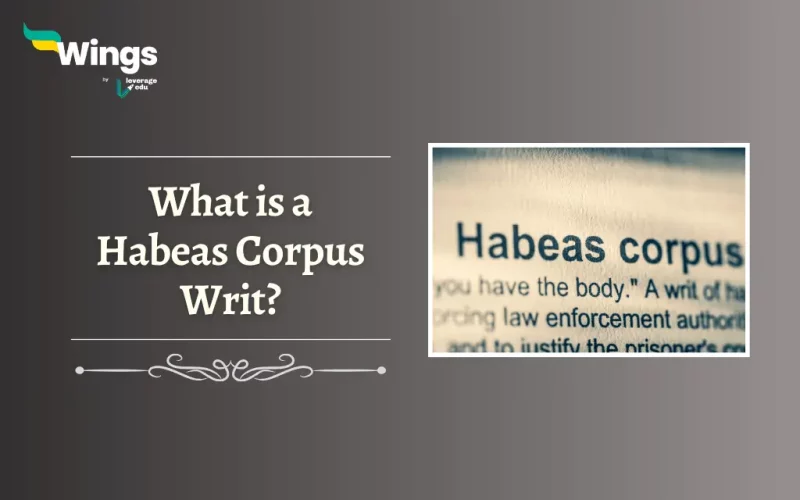The Habeas Corpus Writ protects personal freedom against dictatorial State action. Habeas Corpus is a Latin word that translates to “you shall have the body.” It is also known as the Great Writ. Furthermore, this legal remedy empowers people to challenge the legitimacy of their detention or arrest before a Court of law. Moreover, it is a way to keep a check on Government power, hence guaranteeing that people are not in custody without a just cause. This blog will help you know more about its meaning, what happens when the Writ is granted and an Example of the Writ and its legality in India!
What is Meant by Habeas Corpus?
The Writ of Habeas Corpus is a legal order issued by a Court demanding that a person under arrest be brought before the Court to determine whether the detention is lawful. Therefore, it prevents unlawful or arbitrary detention by the Government.
- When someone files a petition for Habeas Corpus, they ask the Court to review the legitimacy of their detention.
- In addition, they do it to get an order for their release. Moreover, if there is no legal justification for their imprisonment.
Also Read: The Basic Structure Doctrine: Safeguarding Constitutional Integrity
Features of Habeas Corpus
Additionally, here are the Features of the Habeas Corpus Writ:
- Immediate Release on Insufficient Legal Grounds: If the Court finds that there are inadequate legal grounds for the arrest, it will order the immediate release of the detained person.
- Writ of Inquiry: Habeas Corpus functions mostly as a writ of inquiry, issued by the courts to confirm the reasons behind a person’s detention. Moreover, it is a procedural security against the arbitrary detention powers of law enforcement authorities.
- Protection of Personal Freedom: Habeas Corpus is an important tool for protecting a person’s freedom from arbitrary and unlawful actions by the State. In addition, it guarantees that any restraint on personal liberty by the executive, judicial, or other governmental bodies is subject to Judicial review.
- Expanded Scope: The Supreme Court of India has widened the use of this writ. Hence, allowing for compensation for loss of life, as seen in the case of Rudul Shah v. State of Bihar.
- Limitations on Contesting Past Detentions: This remedy cannot be used to contest past unlawful detentions; it applies only to those currently deprived of their liberty.
Also Read: Writ Jurisdiction of the High Court and Supreme Court of India
What Happens When a Writ of Habeas Corpus is Granted?
When a Writ of Habeas Corpus is granted, the detaining authority must produce the detained person in Court. The court will then review the case and decide if the detention is lawful or not.
Furthermore, here are the possible outcomes of the grant:
- Release: If the detention is unlawful, the Court will order the person’s immediate release.
- Continued Detention: If the detention is lawful, the court will allow it to continue.
Also Read: Preamble of the Indian Constitution
Example of Habeas Corpus Writ in India
A prominent Example of the Habeas Corpus Writ in India was during the Emergency period from 1975 to 1977.
- The Government, under Prime Minister Indira Gandhi, had declared a state of Emergency, hence suspending many civil liberties.
- During this time, many political activists and opposition leaders were arrested without proper legal procedures.
- In the landmark case of ADM Jabalpur v. Shivkant Shukla, the Supreme Court of India originally held that during the Emergency, people did not have the right to seek a Writ of Habeas Corpus.
- However, this decision was widely criticised for its erosion of civil liberties.
Related Blogs
Lastly, we hope you liked our blog and gained an understanding of What is a Habeas Corpus Writ. Moreover, you may even read more blogs and empower yourself with knowledge regarding Civics and Polity!
 One app for all your study abroad needs
One app for all your study abroad needs













